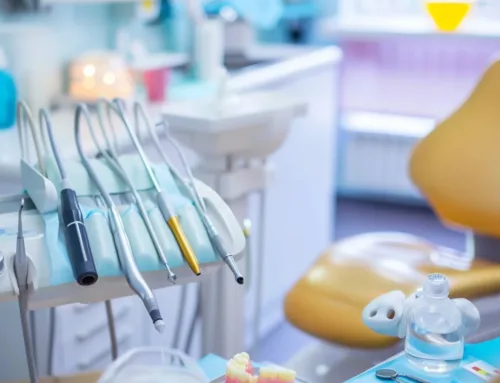Determining the Ideal Timing for Regular Dental Checkups
It’s important to understand how maintaining a sensible schedule for your dental care visits helps to contribute to your overall state of health and well-being, and why it may be advisable to see your dentist more often.
It’s no secret that regular dental checkups are an essential part of our efforts to stay healthy throughout our lives. The benefits of good oral health and hygiene are numerous and keeping up with dentist visits at optimum intervals is the best way to ensure that you are experiencing all these benefits for yourself.
However, how do you know that the schedule you’re on for dental visits is really the best timing for your unique state of dental health? Well, there are several factors that determine how many months should pass in between your dental checkups, and sometimes more frequent visits are not just advisable, but necessary to avoid potential problems in the future.
General Recommended Visit Frequency
It’s generally understood that a visit to the dentist every 6 months is a good schedule to follow for most people. This twice-yearly interval is fairly easy for people to plan for in their schedules, and allows for ongoing monitoring of your state of dental health to catch potential dental problems early enough for fast and effective treatment.
In each checkup, your teeth will undergo a cleaning and thorough inspection to look for any signs of tooth decay, cavities, tooth movement, or any other changes. X-rays may be taken depending on how much time has passed since your last x-ray, and other treatments such as fluoride may be applied as determined by your dentist and hygienist.
In some cases, patients may feel that going to the dentist once a year is sufficient for their needs, since they are extremely diligent with their at-home oral hygiene practices. While flossing regularly, brushing effectively, and using oral rinses can certainly help to maintain a strong and healthy mouth in between checkups, there are still serious risks associated with letting too much time pass between professional dental examinations.
It’s important to note that just because there is no pain, discomfort, or visual problems with your mouth or teeth, it doesn’t mean they aren’t there. Many dental problems can develop unnoticed over the weeks and months between checkups and won’t be easily detectable by the patient until they develop to the point where pain or discomfort starts to appear. By this point, a minor problem that could have been easily treatable during a regular checkup may need a more extensive procedure to correct the issue.
It is for these reasons that the standard dental checkup interval of 6 months is still recommended, even if a patient has a consistent history of good dental health records and diligent oral hygiene habits. In short, waiting too long between dental checkups is just not worth the potential risks.
Dental Health Problems Can Develop Quickly
To further understand the risks of waiting too long between checkups, it’s important to learn more about how some of the most dental problems develop. For example, most people are familiar with the general process of tooth decay. As we eat, drink, and go about our daily lives, bacteria are present in our mouths. These bacteria create acidic conditions in our mouths that affect our teeth by weakening their hard, protective enamel shells. As this process evolves, a cavity is formed in the enamel that can eventually progress through the enamel shell entirely and deeper into the tooth dentin, pulp, or even to the nerve and root of the tooth.
If plaque build-ups up on the teeth, or is allowed to progress to the formation of hard tartar, then this process accelerates and can become a serious problem very quickly. Brushing and flossing are helpful in keeping this to a minimum, but it’s common for certain spots on the teeth to be missed or not fully cleaned, thereby allowing the bacteria to continue to produce the acids that degrade tooth enamel.
In addition to dental hygiene habits, there are many other factors that can play a role in the speed of dental problems developing. In consideration of all of these factors, it may be recommended that you visit the dentist with a higher frequency in order to address the higher risk you may have of developing more serious dental issues at a more rapid pace.
Dental Health Risk Factors
There are many different conditions or situations that can put someone at a higher risk of developing dental issues. Some are related to genetics, some are related to lifestyle, and some are related to other health conditions that a patient may experience throughout their lives.
For example, women who are pregnant can experience a wide variety of symptoms from hormonal changes as their pregnancy progresses. An increased sensitivity to tastes or smells may make their usual oral hygiene routine uncomfortable, with some women even reporting a gag-reflex sensation that can be triggered by the act of tooth brushing. While situations like this are rare, they can occur in different forms as well, and in varying levels of severity.
Other health conditions can have a big impact on your dental health as well. Diabetics are a higher-risk group for developing dental health problems, as fluctuating glucose levels can manifest in the form of accelerated tooth decay and other types of oral health conditions. Immuno-compromised individuals are also at higher risk of developing dental health problems at a faster rate, and so need to take extra care in maintaining the recommended visit frequency as determined by their dentist. This may mean visits at 4-month or 3-month intervals to maintain the optimum levels of dental health.
Harmful or Negative Lifestyle Factors
In addition to medical factors like the ones we just mentioned, there are many lifestyle aspects that can have a serious impact on your dental health. Tobacco use, whether it is in the form of cigarettes, cigars, or chewing tobacco, can dramatically accelerate the formation of oral health problems such as tooth decay, tooth discoloration, gum recession, gum disease, and even oral cancer. Excessive alcohol consumption is also linked to higher risk of developing a wide range of dental problems, and so should be avoided and mitigated as much as possible. For patients in these cases, it may be strongly recommended to proceed with shorter checkup intervals.
Proper nutrition and dietary factors can also play a big role in your risk level. Consuming a higher-than-average amount of sugary foods or drinks can create a more acidic environment in the mouth, speeding up the process of tooth decay and causing more rapid formation of cavities. Maintaining a sensible diet rich in essential vitamins and minerals will reduce these risks and ensure your body has all the necessary resources to help keep your mouth and teeth strong and healthy.
Considering nutrition and other lifestyle factors when developing a dental treatment plan is all part of Georgian Dental’s holistic approach to dentistry. This helps us provide a more comprehensive set of treatment recommendations to our patients, which in turn helps them get the most from each and every one of their visits to our clinics.
So, What’s the Best Dentist Visit Schedule For Me?
The ultimate answer to that question is “It depends.” In general, most patients should assume that a 6-month checkup interval will be your starting point. Depending on your state of dental health, as determined after a thorough exam, x-rays, and discussion with your dentist, this interval may remain the same at 6-months, or may be shortened to 4-months or 3-months. This will be recommended in order to speed up the treatment time and strengthen your state of dental health as much as possible in order to address any existing problems and stave off the formation of more serious conditions.
It should be noted that, for many patients, once a stable and consistent state of oral health has been achieved, they may go back to a 6-month schedule. This is the goal, and your dentist and hygienist will work with you to achieve it and keep your smile looking and feeling great.
If it’s been a while since your last dental checkup, or you may be wondering if your next checkup should happen sooner, we encourage you to contact us today and arrange for your next visit to our offices. Our team of dentists and hygienists will gladly answer any questions you may have about your dental health and provide a set of detailed recommendations tailored to your unique circumstances.
Appointment Request
If you’re interested in any of our procedures, and would like to meet with one of our dentists to discuss options, costs and get additional information, complete this short form and we’ll give you a call to arrange for a no-obligation appointment at our Barrie clinic.










